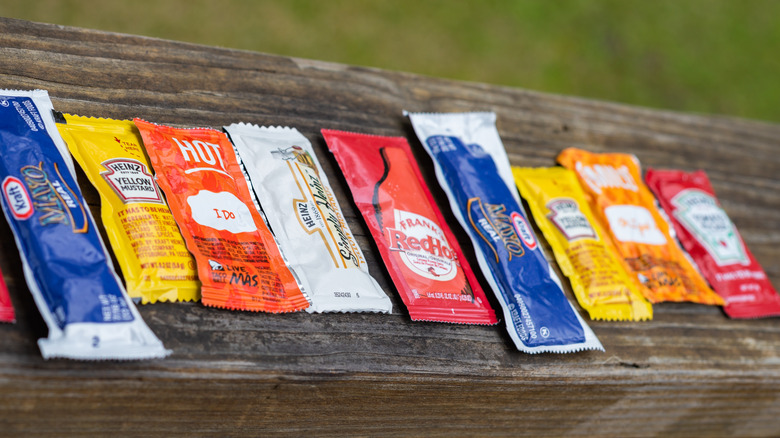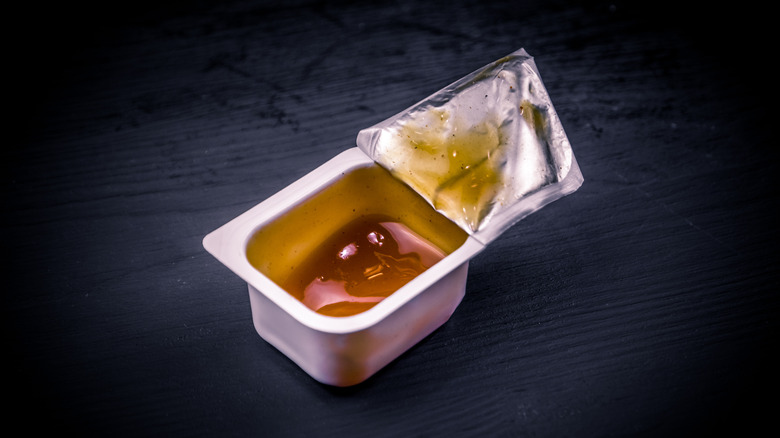How Long Do Fast Food Sauces Actually Last?
Fast food just isn't the same without condiments — imagine chicken nuggets without Chick-fil-A's signature sauce or a Crunchwrap Supreme without a handful of Hot and Mild packets from Taco Bell. While it's tempting to stuff your glove box with extras you scored at the drive thru, don't forget that even sauces have an expiration date. According to Matt Taylor, the director of Food Safety Consulting at the National Science Foundation (NSF), fast food sauces are designed to last... at least for a while. "When it comes to fast food sauces, such as BBQ or ranch, they can typically stay safe for several months when unopened, where they are classed as shelf stable and do not require refrigeration," Taylor explained to Food Republic.
Specifically, sauces like ketchup, BBQ, tartar, and salad dressing can stay good for about a year. Mustard, soy sauce, and taco sauce may keep closer to two years, and long-lasting sauces like Tabasco and vinegar are typically safe to consume for three to four years. Once they're opened, however, or the packet has been punctured, the countdown begins. After this point, "their shelf life can decrease significantly and that product may need to be stored in chilled conditions before being discarded," Taylor shared. In general, open fast food sauces are best consumed within a few weeks up to a few months.
How to tell if your sauce packets are still good
It happens: your fast food sauce pile has grown into a mountain, and there's no way of telling the difference between last week's takeout and packets that have been sitting for years. Luckily, Matt Taylor shared some ways to decipher if your fast food sauce is still good or needs to be tossed. "Signs that a sauce packet has gone bad include off-smells, changes in color, or separation of ingredients, and presence of mold," the expert shared. If a packet's seal is broken or the packaging looks puffed, sticky, or damaged, that's a red flag it could be contaminated. Taylor also recommends checking for a "best by" or "use by" date if you can find it, which is more of a guarantee of peak quality and freshness than a strict food safety guideline. And the golden rule, according to Taylor: "when in doubt, throw it out!"
Once you have identified which packets in your sauce stash are safe to consume, and you still have more then you know what to do with, there are plenty of uses for fast food condiments beyond just hoarding them. Try mixing a few with mayo for an easy sandwich spread, adding them to a stir-fry, elevating your Mexican food dishes, or even packing them in your camping bag to use on a campfire hot dog.


